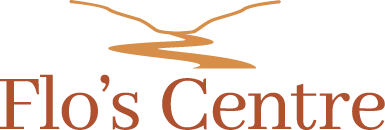The intention of IPT is
to restore balance within
the pelvis...
Integral Pelvic Therapy
What is it
Integral Pelvic Therapy (IPT) is a form of bodywork which has been developed to focus on pelvic complaints. The intention of IPT is to restore balance within the pelvis. This is achieved by raising one’s awareness in the area, giving oneself permission to feel what is present within, and understanding one’s boundaries better. IPT is a means through which stored tension and emotions can be released, in order to heal and restore one’s feeling of vitality.
How does tension become stored in the body, and how can it be released through IPT?
Fascia, the connective tissue which is present throughout the body is designed to reduce friction and support tissues and organs. It transmits tension generated by muscular activity or external forces. If these tensions build up, occur repeatedly, or occur as one significant traumatic event, such as long-term mental stress, a difficult birth, or surgery, then the fascia will struggle to maintain the flow and balance, leading to restrictions. Restrictions in the fascia can result in blood flow being reduced to areas or nerves being compressed, which can lead to pain and/or areas of numbness.
As well as physical stressors, emotional, mental and energetic factors can also contribute to bodily complaints. All these layers are integrated and taken into consideration during a session. They are addressed with presence, use of physical touch and breath-work, to support the flow and balance of the body in its healing process.
Although more than one session may be recommended, clients frequently report significant change after just one session: feeling a deeper connection with themselves, a reduction in their symptoms, and improved sensitivity.
Complaints which IPT can address
- Little to no feeling or contact with your pelvis and/or body
- Pelvic pain or numbness in general, or specifically during penetration
- Severe menstrual pain
- Lower back pain
- Preparing for childbirth, or as part of your postpartum recovery
- Trauma: such as sexual, birth or obstetric
- Scar tissue remediation: caesarean section scar healing, vaginal lacerations or episiotomies
- Hypertonic/hypotonic pelvic floor
- Incontinence issues
- Prolapse (Type 1-2)
- Low libido
- Symptoms related to menopause
- Recurring urine infections, candida, bacterial vaginosis, and so forth
- Constipation
- Chronic inflammation
- Erectile dysfunction
- Premature ejaculation
- Vaginismus
- Hip pain
- Trouble with crossing one’s own boundaries, or knowing what they are
What sessions can look like
Before an IPT session can be offered, an Intake appointment must take place. This hour long appointment enables the client to fully understand what IPT is, and how it may serve them with their request for help. It is also a good opportunity to meet the practitioner beforehand to help inform the client as to whether they feel a full yes to go ahead with a session. Embodied consent is central to IPT, and so the Intake serves as an opportunity to understand and practise feeling a full yes, not only from the head, but also the heart and whole body.
At least 24 hours after the Intake has taken place, there can be a session of up to two hours. The session will start with a short check-in. When the client feels ready they will be invited to lie on the therapy bed, undressing from the waist down as far as feels comfortable for them. Blankets will cover the client to maintain a feeling of safety and warmth. The session may start with a meditation and include some touch from the head down to the feet, depending on what is needed at the time. If the client then feels ready to receive touch on their pelvis, the practitioner will ask to sit on the bed with them, placing the clients legs over their own
What do we mean by Integral?
Essential to make a whole complete
In order to be and feel whole in mind, body and soul, balance is fundamental. IPT is a regenerative means which focuses on a central part of our bodies in order to restore balance.
so that the pelvic area is more easily accessible. This is not always necessary, if the client does not feel an embodied yes for this step then adjustments can be made, such as the possibility of the practitioner remaining to one side if preferred. Likewise, depending on the clients request for help, external and internal touch may be offered during a session, but it is not always necessary to do so. All touch given is based on the client’s individual process and based on embodied consent. Gloves will always be worn by the practitioner for external and internal touch to the pelvic area, this is a non-negotiable boundary for the practitioner.
Disclaimer
Clients sometimes report a feeling of mild soreness following a session, just as you might feel after other physical therapies. If this does not resolve by itself within a few days or worsens, you are requested to make contact for further support and advice. Following a session, remember to stay well hydrated and avoid heavy lifting where possible.
Pricing
Intake: € 175,- / Session: € 350,-

Support around pregnancy, birth, and thereafter
Online consultations as a midwife and bodyworker
- preconception advice
- antenatal guidance
- birth preparation
- postpartum care
- breastfeeding support
Do you have a child wish, are you pregnant, or have you recently given birth? Are you uncertain of who to turn to for advice on how to become pregnant, or discuss whether you truly wish to, or if it is right for you to continue a pregnancy? Perhaps you have experienced loss, and there is some unprocessed pain which requires healing?
Are you pregnant now, but with a midwifery practice that only focuses on the medical aspects, and perhaps you are seeking support emotionally, in relating with your partner, or in preparation for the birth and thereafter? Or have you given birth and either seek extra support with breastfeeding, or wish to support your healing process through ceremonies such as: yoni steaming, touch/massage, Rebozo closing the bones?
Pricing
Free 20 minute intake to discuss individual needs
1 hour online consultations: € 95,- (inc. VAT)
Package deal (three consultations): € 250,- (inc. VAT)
Closing with Intention Ceremony
This ceremony originates from Mexico and is known there as the Closing of the Bones Ceremony. It is typically performed during La Cuarentena or the 40 days after giving birth.
I am grateful to have received the wisdom from those who respect and honour its roots. What I can offer can never fully replicate where it originates from, which is why I have named my offering Closing with Intention. I wish to offer this ceremony to people who recognise its healing medicine.
Milestones one may resonate with to receive a Closing are:
- Transition from pregnancy to motherhood
- Loss: miscarriage, termination, stillbirth
- Death of a loved one
- End of an illness
- New situation: home, work, relationship
Whether you do this straight after the event or years later it does not matter, the intention you come with is what is important.
The “Closing” part of the ceremony entails being bound with rebozos (long scarves) for a period of time- set within your boundaries and consent.
What to expect:
- Before we meet we will first have contact, either by phone or email. I will then send you a questionnaire so that I am aware of the relevant parts of your history and your intention for the ceremony.
- The ceremony takes place at your home and can last up to four hours. If you are postpartum and need to feed your baby, time will be made for this.
- Two people are required to facilitate the ceremony. If you prefer to have a friend of yours do this, I will need to have contact with them beforehand to ensure that they are able to do this and are fully informed. Otherwise a colleague of mine will be present.
- On arrival I will need to set up the things I have brought with me. As you will know from the information I have sent you, you will have been asked to set up a space where the closing part of the ceremony can take place.
- We will begin with a check-in and the drinking of a special tea which I will bring with me. Following this we will either begin with a massage or bath. If you do not have a bath, a yoni steam or salt foot bath is also possible. After these two stages the closing ceremony can take place. The closing entails using between five and seven rebozos (Two meter long scarves) to enclose your whole body. Each closing of the rebozos can last up to seven minutes, to allow time for your process; it is possible for this time to be shorter depending on what you need, and the process can be stopped at any moment. The ceremony is facilitated by us, but we are always listening and going at the pace set by you. Your consent is fundamental for your experience and feeling of safety.
- Embodied consent is sought throughout the ceremony. This will be discussed at the beginning, only agreeing to steps when the client is ready and feels a full yes from the head, heart and whole body. In this way we can respect one another’s boundaries.
Closing with Intention Ceremony:
Marking a transition or milestone in one’s life; present acknowledgment of one chapter ending in support of the next one’s beginning.
I am currently offering this ceremony for free while I gain more experience working with the rebozos. If receiving a ceremony of this kind resonates with you, please reach out. I will ask for travel costs and supplies to be reimbursed.
Price: € 0,-
Supply costs: herbs, oils, other
Travel costs: 0,30cent/km • parking (if relevant)
Travel costs: 0,30cent/km • parking (if relevant)
What is needed:
For you: sarong • dressing gown • socks/slippers • A different set of clothes to put on after the ceremony
For the space: single mattress and sheet • blanket/s • altar space, including a cloth or something to put your pieces on • altar pieces: this is for you, it does not necessarily have to be full with items. Ask yourself what feels important to be present • candles
If you do not have any of these items, let me know and I will see if I can provide them on the day.
Women
- it is not possible to receive this ceremony from me during pregnancy.
- if you are postpartum, we can find a time for the ceremony when your bleeding has stopped.
- the ceremony can go ahead if you are menstruating and are comfortable with this.


Support Circles, Workshops, Meditations and more...
Support circles
Keep an eye out here or on my instagram page for future events. Possible circles may include: women’s groups, men’s groups, pregnancy circles, mothers/parents, breastfeeding/feeding support, baby massage sessions.
Keep an eye out here or on my instagram page for future events. Possible circles may include: women’s groups, men’s groups, pregnancy circles, mothers/parents, breastfeeding/feeding support, baby massage sessions.
Workshops
In the near future, I hope to be able to invite you to workshops such as: pregnancy retreats (focus on your relationship and preparing for your newborn); relating for new parents (a workshop that is accessible to you even early on in parenthood as childcare would be provided).
In the near future, I hope to be able to invite you to workshops such as: pregnancy retreats (focus on your relationship and preparing for your newborn); relating for new parents (a workshop that is accessible to you even early on in parenthood as childcare would be provided).
Meditations
Meditations with my clients focus on: making contact with your baby; making contact with yourself/pelvic area and noticing what you feel; birth visualisations; gratitude. Once I start recording them, I will gradually add them here to be made use of for free.
Meditations with my clients focus on: making contact with your baby; making contact with yourself/pelvic area and noticing what you feel; birth visualisations; gratitude. Once I start recording them, I will gradually add them here to be made use of for free.
and more
Available to purchase online: personalised tea, formulated to your needs; Yoni steam herbs, to be sent with instructions; Bengkung belly bind, for use after the birth in support of recovery, support and healing. Please contact me with your request for help and to find out prices.
contact
The location for the sessions is at the Dana Centrum. There is free parking on site. Please enter Dana Centrum through the main entrance, leave your shoes here and wait in the first room on the right as you enter, and I will come to greet you when I am ready. It is a large building and can sometimes be cold underfoot, so you may wish to bring some extra socks or slippers with you. I look forward to meeting you.
Flo’s Centre
| Adress | Dana Centrum - Boulevard 19, 3707 BL Zeist |
| KvK | 91075955 |
| BIG | 09930895403 |
